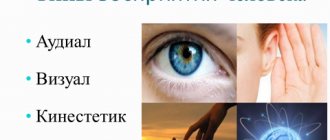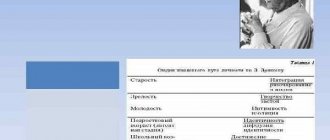Are you on the right path for your career growth? Or do you just want to do what you do? Answer the question how your strengths and abilities match your daily work, because... it has a big impact on your quality of life.
The first factor in a successful career is unlocking your abilities, which essentially reveals your strengths that you could use. The invaluable ability factor is quite simple. It shows how good you are at what you do or how valuable you are to your company or your clients. When you started working in your position, you had a certain level of qualifications that qualified you for the job.
However, getting a job does not make you invaluable. You need to increase your overall value to ensure you are indispensable at work. Simply put, ability is a measurement of how much you exceed the expectations of your boss or clients. You can read about how to become indispensable and gain authority in our article “How to become an authority in a company and society.”
This material will help you recognize your strengths, understand your talents, and understand the process of improving them. When you put your effort into what you already have, you will reap greater benefits than wasting a lot of energy on something that is not your strength. In fact, one characteristic of highly successful people is that they have learned to develop their strengths rather than trying to improve their weaknesses .
Next, we'll look at how your talents match the job responsibilities you perform or the position you want to pursue. In today's competitive market, it is important to constantly improve and move forward. This article will help you create an action plan.
What are aptitude tests
Tests of ability to analyze information are a method of personnel selection that objectively assesses predisposition to professions. This way, the employer gets an idea of how suitable the applicant is for a specific position, and the candidate gets the opportunity to reveal his qualities.
Based on the results obtained, HR evaluates future employees impartially. This minimizes the likelihood of lying, eliminating situations where an incorrect first impression of applicants during an interview prevents an employer from choosing an employee.
As a result of fair competition, the position is awarded to the most prepared, motivated and competent candidate.
Tests from SHL rus, Talent Q, Ecopsy Consulting are used by the largest Russian companies and government agencies. For example, at the remote stage of the “Leaders of Russia” personnel competition, ability tests were used as the primary selection of participants. They help identify capable candidates for senior management positions: general, financial, creative directors, top managers, managers of branches and enterprises.
Important:
With the help of mental ability tests, civil servants and employees in business, marketing, IT technologies, HR, consulting, and analytics are selected. In addition, tests are used to evaluate university graduates, form a personnel reserve, and determine the prospects and potential of young specialists.
What does testing evaluate?
Assessment tests do not determine developed skills, but the basic abilities or predispositions of candidates, without affecting human psychology. They help to understand the development prospects in the industry.
Aptitude tests are used to determine a person's potential and the contributions he or she is capable of making in the future.
Aptitude tests are used in all industries. They are used to identify:
- aptitude for exact sciences;
- analytics;
- modeling;
- predict the speed of reaction and thinking;
- ability to make decisions in emergency situations;
- degree of intellectual development of a person;
HR department employees use them in business, determining their aptitude for working with finances and communicating with clients.
Testing is usually done remotely
, on the online portal of the recruiting company. SHL, for example, has a system for this called SHLtool test, which automatically generates reports, links to testing and a list of the best candidates.
What are the types of aptitude tests?
Tests of verbal and nonverbal abilities usually include 3 tests. Each company has a different approach to assessment, so sometimes they use all three tests at once, and sometimes only one of them. It is recommended to ask HR about the procedures adopted in a particular company.
Numerical tests
This type is used by interviewers in most companies. They reveal the inclination and level of development of abilities for exact sciences and calculations. As a rule, they are offered to those candidates whose job responsibilities involve calculations or working with numbers. For example: IT; business; consulting; banks; logistics; industry.
Testing numerical abilities evaluates the perception and analysis of numerical information, working with currencies, drawing up analytical tables, graphs, and diagrams. The tasks are overloaded with unnecessary numbers and graphs, from which you need to find the necessary information and make simple mathematical calculations. Typically, this is a calculation of percentages, shares or proportions.
Example of a numerical aptitude test:
Go throughGet ready
Verbal
Verbal tasks assess the level of ability to analyze verbal information, that is, the skills of perceiving text and the ability to navigate in it. Based on the test results, HR understands how productively a person absorbs text, analyzes it and makes decisions.
Assignments are a passage of text, one or more statements, or a question. The applicant needs to determine whether the output matches the text or not. In verbal analysis tasks, there are usually at least 5 statements. Moreover, only one of them corresponds to the idea of the text. The second type of task is more difficult, because a person must simultaneously keep several sentences in his head.
Example of a verbal ability test:
Go throughGet ready
3.Spatial and systems thinking (Logical)
Logical tests assess the level of abstract thinking of the candidate, the consistency and logic of his decisions. For example, at the SHL company such a test is called the Systemic Thinking Test SRT (Systems Reasoning Test). Nonverbal testing is used in IT technologies, banks, light, heavy and oil industries, and is used by audit firms.
The tasks consist of a sequence of geometric shapes that must be continued.
Spatial Reasoning Test:
Go throughGet ready
Understanding Mechanics
Bennett (mechanical aptitude) tests are used when hiring engineers or technical personnel whose work requires knowledge of basic physical principles. Such questions assess understanding of mechanics, dynamics, knowledge of the laws of physics, and the ability to mentally work with figures in space. They also contain elements of standard tasks for determining the IQ, therefore they are used when hiring managers, bankers, financiers, and senior executives.
Mechanical Understanding Test:
Go throughGet ready
A little independent work to find out your strengths
The main flaw in our career choices is that we ignore our talents and try to get a position that does not suit them. We spend a huge amount of effort and energy to match our strengths to the position we receive. But we end up jumping from one position to another feeling that this is not what we want to do. All this is the reason for not knowing your talents.
Your talent includes three things: gift, love and skills, where:
- Your gift is something you were born with, an aptitude you have from the very beginning. These tend to be areas where you do better than other people. This is something that has always been given to you without much effort. Every person has at least one or two gifts;
- Love is something you do with passion and pleasure. A person may be gifted with something, but he does not necessarily have to love this gift. Let's say someone is good at math, but he doesn't like doing it. Thus, love as part of talent considers what you enjoy doing at any time. When you work, time just flies by because you enjoy it;
- Skills represent the knowledge and abilities you have acquired over time. You acquire them with education, courses, hobbies or work practice.
Try to think of talented people you know who have achieved success in their careers and you will find that they have a natural gift in this field, they love what they do, and they have also worked and studied hard to improve their skills over time.
So, the first step to discovering your talents is to understand your gift. Your gift is something you are born with or something that comes naturally to you. It has always been with you and is part of your personality. Identifying and strengthening your gift will give you the greatest growth and benefit in the shortest possible time.
To find out your gift as your strength, you will find a form with questions, the answers to which will give you an initial understanding of your gifts. There, you will find the second part, where one of your loved ones or friends will fill in their impressions of your gifts. When answering questions, try to write the first thing that comes to mind.
1) What comes easy to you? Write here what you do with ease;
2) When you were a child (before 10 years old), what seemed easy to you then? Think about an activity that you spent a lot of time doing and enjoyed;
3) In what areas have you received awards, won competitions or received praise? This is external confirmation of giftedness and abilities. This means that some person or group of people recognized your gifts and rewarded you for them;
4) When do people tell you, “I wish I could do it like you.” How do people recognize you as a role model?;
5) Take 5 minutes for quiet self-reflection. This means doing nothing other than sitting and thinking and focusing on this question: What are your natural gifts? After 5 minutes, write your answer. Many people like to quickly answer questions with only a superficial definition of innate qualities, which may be less useful;
6) A question about the results that you have already received on a similar topic from other sources.
Once you and your “witness” have completed the required sections, you can move on to the “Other” column. This indicates any overlap between your responses and the other person's. For example, if you received an award for public speaking and your assistant responded the same way, then you check the box. This means that you and someone else have agreed that this is your gift.
After you have answered and marked everything, go to the “Multiple Mentions” section. This is where you list the areas that both you and the other person have mentioned. If you both mentioned that you are good at sales, then write “sales” in this section, etc. After doing this work, you will be left with an understanding of what your gifts are or areas in which you excel.
It's not always possible to be successful at what you love. Sometimes, there are not enough skills for this, or there is huge competition in this area. But doing what we love allows us to be more resilient and persistent. Try answering the following questions about your hobbies:
- What part of your current job do you enjoy most?
- If money were no object, what career field would you choose?
- What job makes you lose track of time?
- If you have any hobbies or interests, please list them?
- Do these elements of your hobby apply to your work? You may be able to find a job equivalent to your hobbies. For example, attention to detail, categorization, evaluation, all these things have very strong equivalent values to stamp collecting.
- Think for 5 minutes in a calm environment about the question: “what job do you love most?” Allow your mind to replay all the work you have done since your earliest memories.
After you have answered all the questions, look at the activities that you mentioned 2 or more times.
After identifying your gifts and activities that bring you joy, consider the skills you have been taught. Our skills consist of the knowledge we acquired during our studies, the experience we acquired from our parents or mentors, and the work we have done in the past. In this case, you need to answer the following questions about your skills:
- What kind of education did you receive at college, university, courses?
- What professional atmosphere did you grow up in? Perhaps when you were younger, you heard your parents talk about this or that field of activity, the history of their professional experience. When you are present at someone's place of work, or you overhear conversations at lunch, it naturally affects your skills.
- Who were your mentors? These are people who have had a profound impact on you and your life. What have they done for their careers? Mentors can have a significant impact on your skills, perceptions and understanding because you look up to them as an example. So list some of these mentors and what careers they had.
- What positions have you held in the past?
- What do you study or read in your free time? Think about the magazines you subscribe to, the books you like, the blogs you visit, or even the podcasts you listen to.
- What additional training have you received? For example, maybe your job required you to attend some workshops, or maybe you acquired some skills through volunteer work or in the communities you were part of.
Now, based on the answers you received, determine your true talents. To do this, open the list of talents, where you will see three columns: “Gift Mentions,” “Hobbies Mentions,” and “Skill Mentions.” As you fill out this form, remember what you mentioned most often under each section. These things matter a lot in your life. Your worksheet should look something like this.
Then find the commonality between the three columns. If you listed your sales ability as a gift, and you enjoy selling, and that you were trained in sales, then put it all together with a line. This is a very likely indicator that you have sales talent. You may see phrases that are related to each other, but not exactly the same. Consider whether you can link them. For example, you might mention that one of your gifts is public speaking, and in your hobbies and skills you mention teaching people. They are closely enough related to each other that you can combine all three and draw a line connecting them and count teaching people as one of your talents.
Please note that this form has space for a maximum of three talents. This is done so that you do not spend your time on developing all your talents, scattering it, but focus on the most important ones. It is also very good if you have identified just one talent. This will allow you to focus on it fully. Remember that the people who are most successful in their careers are those who naturally focus the majority of their time, training, and effort on their talent. Next, we'll look at how to match your strengths with the work you're currently doing.
Difficulties and errors during passage
Aptitude Test Difficulties
| Stress | Since an interview is always associated with emotions, stress significantly affects the result. The anxiety is heightened by the lack of information about the tasks and the time limits for completing them. |
| Lack of preparation | Many candidates do not know what awaits them in the assessment and how to prepare for it. This approach results in even competent applicants receiving low grades |
| Lack of time | You are given no more than a minute to complete one task, so there is always little time to think. Unprepared applicants need time to understand the question, understand the essence of the task and choose an answer. |
| Lack of information | Some applicants are not interested in the problem format, authors, or company testing procedures. They train on tasks of the same type or, conversely, delve into specific literature, gaining extra knowledge not related to testing. |
Criteria for a mature personality
Various concepts are also put forward on this score, the focus of which is on a variety of elements of the personality structure.
Carl Jung said that a mature personality readily accepts responsibility for its actions. For Carl Rogers, it means the freedom to be yourself, to make your own choices, to manage your life. Next we will get acquainted with the concepts of four psychologists: Kazimierz Obuchowski, Arthur Rean, Gordon Allport and Lidia Bozovic.
Obukhovsky's concept
Polish psychologist Kazimierz Obuchowski's concept is of particular interest because it is the least similar to the others on the list. He proposes to consider four parameters and not single out the main thing among them - all of them must be developed equally in order for the personality to be considered mature.
- Feeling of life satisfaction : this is the overall positive background against which a person views his existence. However, this does not mean that such a person cannot experience negative emotions, which are an inevitable reaction to the difficulties of life. At the same time, if the influence of destructive emotions continues long enough, a person loses his ability to develop.
- The emergence of new features : a different understanding of the world, new views. And most importantly, the transition to an abstract concept of the world.
- Development of skills : a person needs to strive to acquire new skills, abilities and knowledge, despite the fact that this leads to an increase in the complexity of the tasks facing him. It must constantly improve to keep up with demands.
- Self-control : A person is controlled by his emotions, so he must learn to distance himself from them so that it does not affect his intellectual capabilities.
Rean concept
Russian psychologist Arthur Rean considers four basic criteria for a developed personality:
- positive thinking and perception;
- self-development;
- tolerance;
- responsibility.
Rean argued that personality is never fully formed, it is constantly evolving. But he sees this not as a tragedy, but as the opening of limitless opportunities for personal improvement.
A person must learn to successfully implement the resources, strengths and abilities at his disposal to achieve his goals, as well as actively master more global and significant values.
Allport concept
American psychologist Gordon Allport offers six main criteria for a developed personality:
- Self-acceptance and tolerance towards others . A developed personality has its own strong beliefs and at the same time allows for the existence of a different point of view.
- Strong social connections . A developed personality knows how to maintain close relationships and at the same time not interfere with others with his existence.
- Expanding the self-concept . This is the activity of the individual, the purposefulness of his activities.
- Unity of ideological views . A mature person has an idea of his life purpose.
- Self-objectification . A person is able to be himself, be in harmony with his inner world and not play other people's roles.
- Realistic perception, assessment of skills and task . A person should not be subject to momentary fads, but instead set a goal and achieve it.
Bozovic concept
Soviet psychologist Lidiya Bozhovich, a student of Lev Vygotsky, identifies two key criteria for a formed personality.
First criterion : the motives of such a person are inherently hierarchical. She is strong-willed and capable of indirect behavior (she is not controlled by impulses, but by rules, requirements and norms).
Second criterion : a person’s ability to consciously control and manage his behavior. This is only possible if he relies on his own motives, goals, aspirations and beliefs.
We wish you good luck!
Did you like the article? Join our communities on social networks or our Telegram channel and don’t miss the release of new useful materials: TelegramVKontakteFacebook
We also recommend reading:
- Storytelling
- Conditions for character formation
- Personal identity
- How to create your own personality chart
- Character
- Mature personality
- “What is in your character?”
- How to Achieve Emotional Maturity
- Socialization of personality: briefly about the main thing
- The influence of social roles on personality development
- Spheres of personality
Key words:_D1002, _D1003, _D1027, 1Self-knowledge, 4Self-knowledge
Tips for preparing for mental ability tests
- According to HR consultants, the best way to prepare is to take practice tests online. This way, applicants become familiar with the form of tasks, find out what questions they will encounter during an interview, learn to quickly answer them, and identify their strengths and weaknesses. In addition, such training allows you to avoid stress and gain confidence in your own abilities.
- During practice tests, it is recommended to analyze the mistakes made using the solution manuals. First of all, it is important to identify weaknesses and understand why the wrong answer was given. After this, they devote time to searching for information on this topic.
- There is no point in looking for free answers to tests. In each company, the bank of questions is constantly updated - employers try to avoid a situation where two candidates are faced with the same set of tasks. A dynamic difficulty level is often used - the difficulty of testing depends on the number of correct answers. In this case, no two identical tests are found at all.
- Stay calm and concentrate. Self-doubt and haste will negatively affect the result.
Advice:
If a question is difficult, sometimes it is better to skip it than to waste the remaining time.











